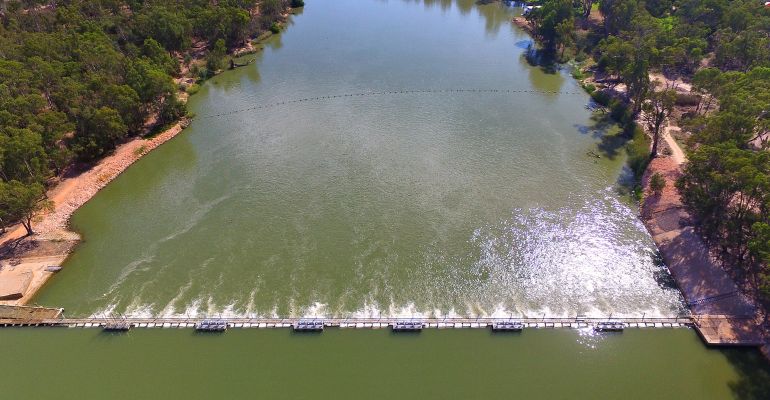Water management and governance is undergoing rapid transformation as cyber-physical systems are deployed across the water sector.
Cyber-physical systems are often described as artificial intelligence-enabled, automated, or ‘smart’ technologies that can be used to improve the monitoring, management and governance of hydrological systems.
According to new research involving academics at The Australian National University’s School of Cybernetics, the Fenner School of Environment and Society and the Institute for Water Futures, the diverse role of cyber-physical systems across the water cycle could be better integrated with social and ecosystem dimensions through a cybernetic approach.
Cyber-physical systems have been heralded as a vital step towards improving the management of ecosystems, but the potential risks and impacts of smart technologies on environmental sustainability have long been under researched.
“Cyber-physical systems are often deployed to support decision-making and to control or optimise action, with varying levels of autonomy,” lead researcher Professor Katherine Daniell says.
There has been a recent influx of the application of cyber-physical systems across many parts of the water cycle.
“In a water management context, cyber-physical systems are found throughout landscapes, from smart water metering and leakage detection in cities or irrigation networks, to water quality monitoring such as predicting algal blooms or detecting contaminants in water systems.”
In dams and reservoirs, cyber-physical systems are increasingly developed for flood prevention and real-time dam infrastructure monitoring. By using data from drones, satellites and a range of other on-farm sensors, ‘smart’ irrigation systems avoid under- and over-watering by scheduling irrigation based on crop types, soil characteristics and weather conditions.
Integrating a cybernetic approach to understanding cyber-physical systems means navigating the multiple feedbacks and complex technological, social and environmental systems in place.
“This includes questions of physical resource extraction and the energy and water use required to keep them running, and whether the potential gains from the system will actually lead to more sustainable and just outcomes, not only at the implementation level, (e.g. a farm or agency level), but at a water basin or global level,” Professor Daniell says.
“Cybernetics also supports us to consider how societies co-evolve and are impacted by these technological and environmental processes.” There is great potential for future research using cybernetic approaches to consider and support those deploying cyber-physical systems for water management and governance in safer, more sustainable and responsible ways.
“Cybernetics can enable and encourage us to more intentionally reflect on and build the water futures we collectively want,” Professor Daniell says.
“Not by considering cyber-physical systems as an inevitable technological innovation that will improve water management, but instead asking - which cyber-physical systems do we want and why? who will they benefit? and how can we build or resist them better in different forms and communities?”
“This will give us a greater opportunity to develop more inclusive, just and sustainable water management and governance around the world.”
This collaborative synthesis research undertaken by researchers at the ANU Institute for Water Futures from the School of Cybernetics and Fenner School of Environment and Society provides a point in time review of some of breadth of research focused on and relevant to cyber-physical systems and water management and governance.
Read the full paper here.

